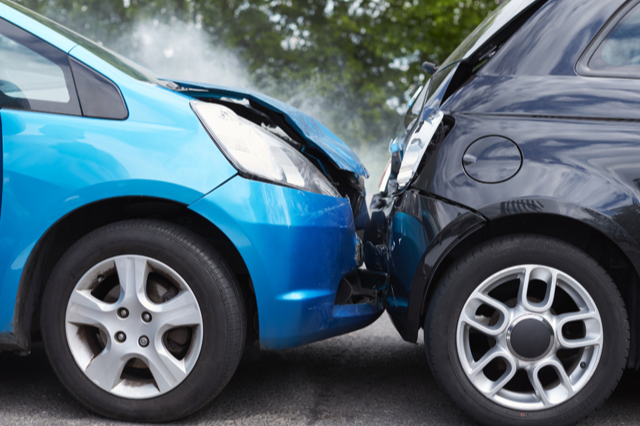In the world of auto insurance, too many options can be confusing to someone unfamiliar with insurance terms. There are two main factors to consider when purchasing the appropriate insurance: knowing how different types of insurance work and knowing how to tailor each type of insurance to your unique needs. For many drivers on the roads of Florida, comprehensive and collision insurance are the best options.
Following an accident, they can both be essential to help repair any damages your vehicle has sustained. In reality, comprehensive and collision insurance are typically two types of insurance that people confuse constantly with one another. Florida residents tend to assume that these two types of insurance are interchangeable, but they aren't. Although neither is required by Florida law, they can both be valuable additions to your current insurance coverage.
We will discuss the differences between comprehensive insurance and collision insurance in Florida in this article. Both insurance policies cover damage to your vehicle, but the kind of damage they cover differs. The ability to figure out whether to buy one or the other and when to bundle them, could save you a ton of money in repairs, no matter if the damage was caused by an accident or not.
What is Collision Coverage in Florida
Collision coverage for your vehicle covers damage to your vehicle. Whether you caused the damage or not is irrelevant. You can use the coverage to fix or replace your vehicle in a variety of circumstances. An example of that would be damage to your vehicle caused by a traffic accident involving another vehicle. These would also include incidents like hitting a tree or a guard rail. Even one-car accidents that cause damage to your vehicle are covered by collision insurance. A collision coverage policy is a form of insurance you can buy to protect the value of your vehicle. The policy doesn't cover damage caused to other vehicles, people, or things.
It is possible to obtain collision coverage even if you were at fault for the accident. Due to the fact that most Floridians do not have any form of insurance coverage, collision insurance can help you recover if you are at fault in an accident, regardless of the other party's insurance coverage.
Insurance companies in Florida determine your collision coverage based on the age and value of your car. In Florida, property damage liability requirements only cover up to $10,000 in damages, so collision coverage can help ensure that all of your repairs are covered if your accident is extensive. If any of the following events occurred during your accident, you may be eligible for this type of coverage:
- You unintentionally back into another car
- You collide with a telephone pole or tree
- You roll your car, also known as a rollover accident
- You hit a pothole, a building, or a curb;
Prior to receiving collision insurance coverage, you will need to pay a deductible. In order for coverage to begin, you will need to cover a portion of the initial cost of repairing your vehicle, even if you are not at fault. Deductibles can range between $250 and $1,000 per accident.
Collision Coverage for Hit-and-Run Accidents
Your collision coverage will come in handy if your car is hit by a hit-and-run driver. When you hit another car or when you are hit by another car, collision insurance covers the damage to your vehicle. Regardless of the driver's fault. Your collision coverage will cover the damage if the vehicle strikes your car and drives away. In this situation, since you will not have the other driver's information, only your collision coverage will provide property damage coverage.
This is particularly useful for those who park their cars in garages or on busy streets. Another driver might scratch or dent your car and drive away without telling you. If this happens, you can file a claim for damage. Dent and scratch repair can be quite expensive.
What is Comprehensive Coverage in Florida
When a vehicle is stolen or damaged in an incident other than a collision, comprehensive insurance helps pay to replace or repair it. A comprehensive policy covers damage resulting from fire, vandalism, or falling objects (such as trees or hail). Your lender may require comprehensive coverage if you are financing or leasing your car. When you own your car outright, this is an optional policy addition.
If you're shopping for auto insurance or reviewing your existing policy, comprehensive coverage might be worth considering. The coverage of comprehensive insurance differs from collision coverage. You will also learn about its limits and deductibles.
Comprehensive covers damage that doesn't occur because of a collision, such as:
- Thieves damage or steal your car, or steal valuable items, such as tires
- Vandalism
- Fire
- Natural disasters of any kind (like hurricanes or tornadoes)
- Falling objects/Debris
- You hit an animal while driving, such as a deer or a bird
- The destruction or damage to your car as a result of a civil disturbance (like a riot)
What If You Only Get Comprehensive Insurance?
In some cases, it is better to have comprehensive coverage instead of collision coverage, even if your car is not valuable. With comprehensive coverage, you're protected for a lot more risks including theft. If you depend on your car to get to work every day, having it stolen is an inconvenience no matter what the value of your car is. A $1,500 check from your insurer, even if your car was only worth $2,000 at the time of the theft, could go a long way towards purchasing a new vehicle.
We discuss comprehensive insurance in more detail below, but general quotes are usually around $200 a year, so a $1,500 reimbursement would make the coverage worthwhile. However, only 3% of drivers with comprehensive coverage file a claim in a given year, so consider that when deciding whether to purchase it.
What is the Cost of Collision and Comprehensive Coverage?
Generally, you can expect to pay about the same amount for collision and comprehensive as for a liability-only policy, while comprehensive is about 10% more expensive. In the example above, if a liability-only policy costs $100 per month, adding collision would bring the total up to $200, and adding comprehensive would bring the total up to $210 per month.
What Makes Collision Coverage More Expensive than Comprehensive Coverage?
Answering this question is a matter of chance and risk. Events that result in collisions are much more likely than those that result in non-collision damage. A tree falling on top of your car is not as likely to happen as driving into a tree. Furthermore, the cost of repairing the damages caused by a collision accident is usually higher than the cost of repairing the damages caused by a non-collision accident.
When You Might Drop Both Collision And Comprehensive Coverage
There is a 10% rule you may have heard of. When deciding whether or not to purchase collision and comprehensive insurance, this is a helpful guideline. The cost of collision and comprehensive coverage isn't always worth the premium. For example, if your car is old or has a low value. When you have an old car, its "actual cash value" is going to be low. For example, if your vehicle was totaled in an accident and it was only worth $2,500, your insurance company will only pay you for that amount.
If your car is totaled, that amount won't help you get you back on the road. Try to stick to the 10% rule. Check out Kelley Blue Book or Edmunds for the actual cash value of your car. Take 10% of that amount. If you pay more than that amount for collision and comprehensive insurance in Florida, you should drop it.
The Difference Between Collision and Comprehensive Coverage in Accidents?
There are many types of car accidents, and they can become quite complicated. Imagine you're driving along a road, swerving to avoid a deer, then running off the road and colliding with a tree. Do you need comprehensive coverage or collision coverage? Which do you need?
After your insurance company investigates the incident and determines the direct cause of your damages, your coverage will be categorized appropriately. An insurance company will treat the deer-tree accident as a collision since the tree caused the damage. You will receive comprehensive coverage if you hit a deer instead of a tree.
Some claims, however, are more difficult to define. If you need help navigating Florida car insurance coverage after an accident, contact DOCS4PI.





